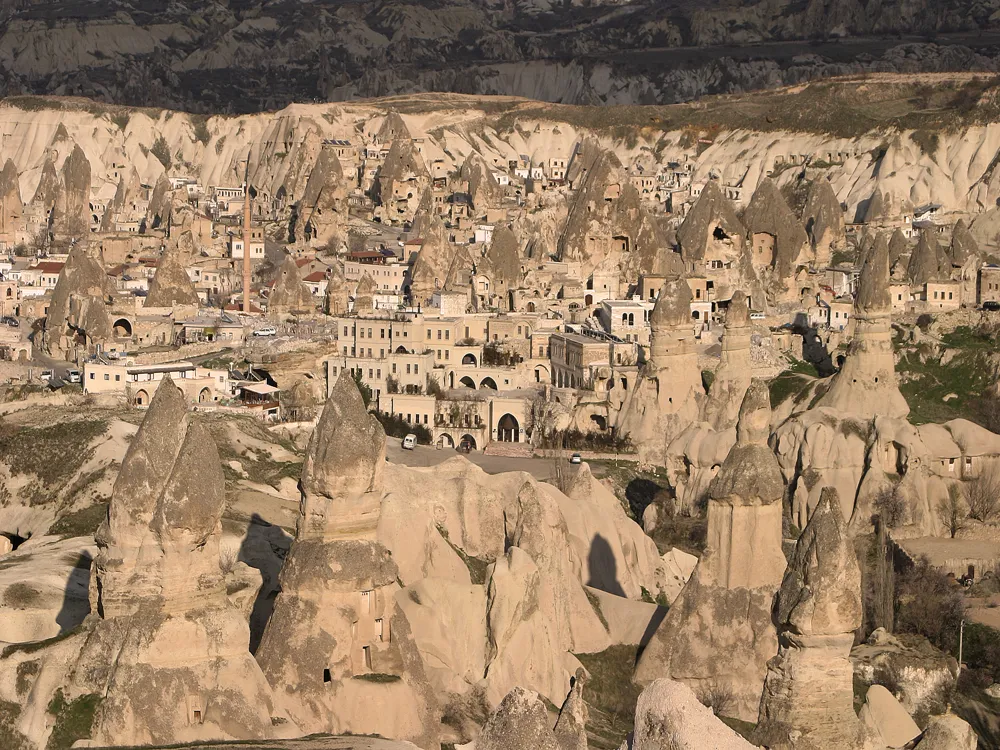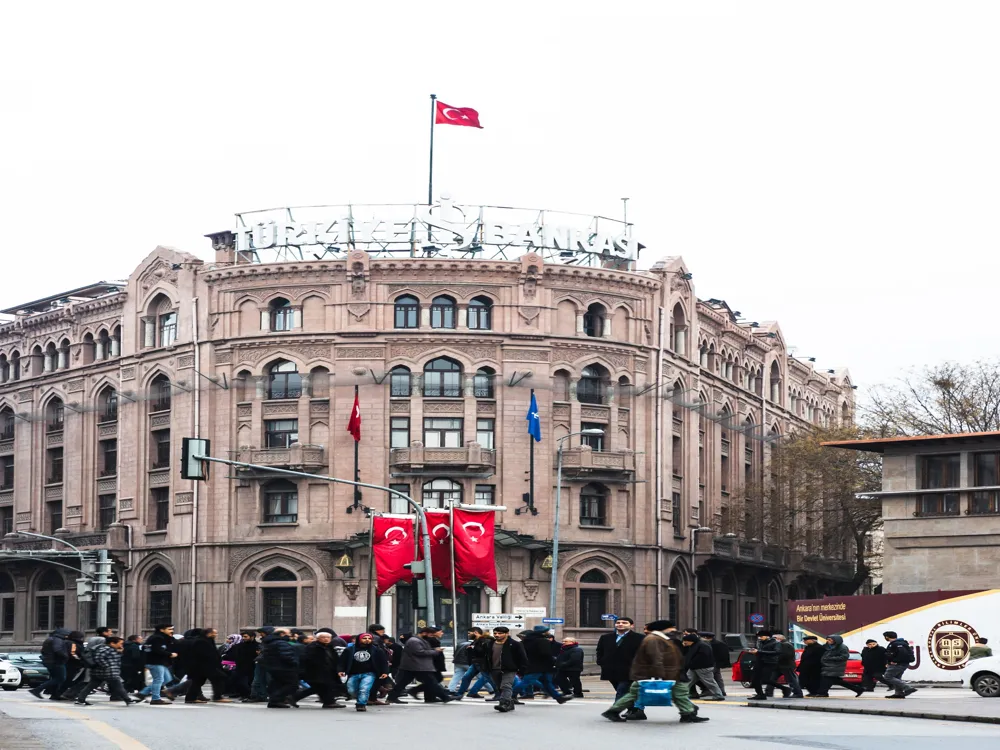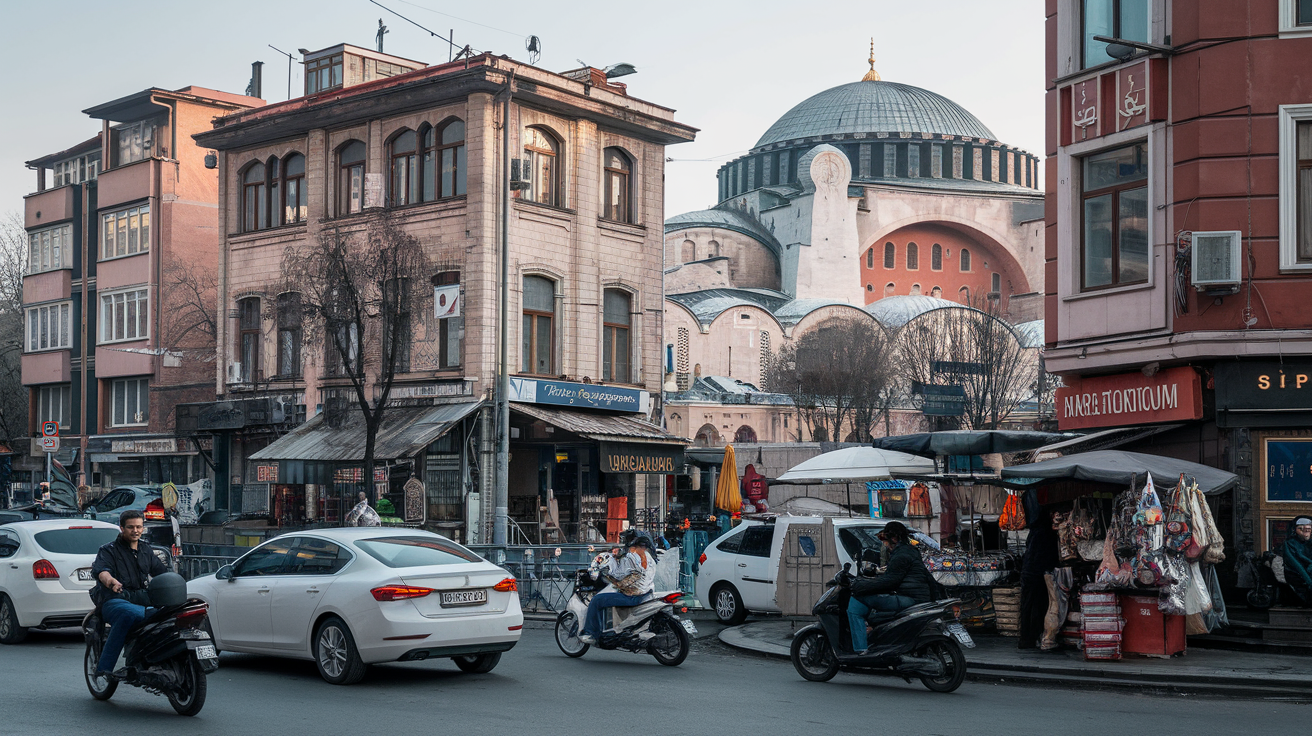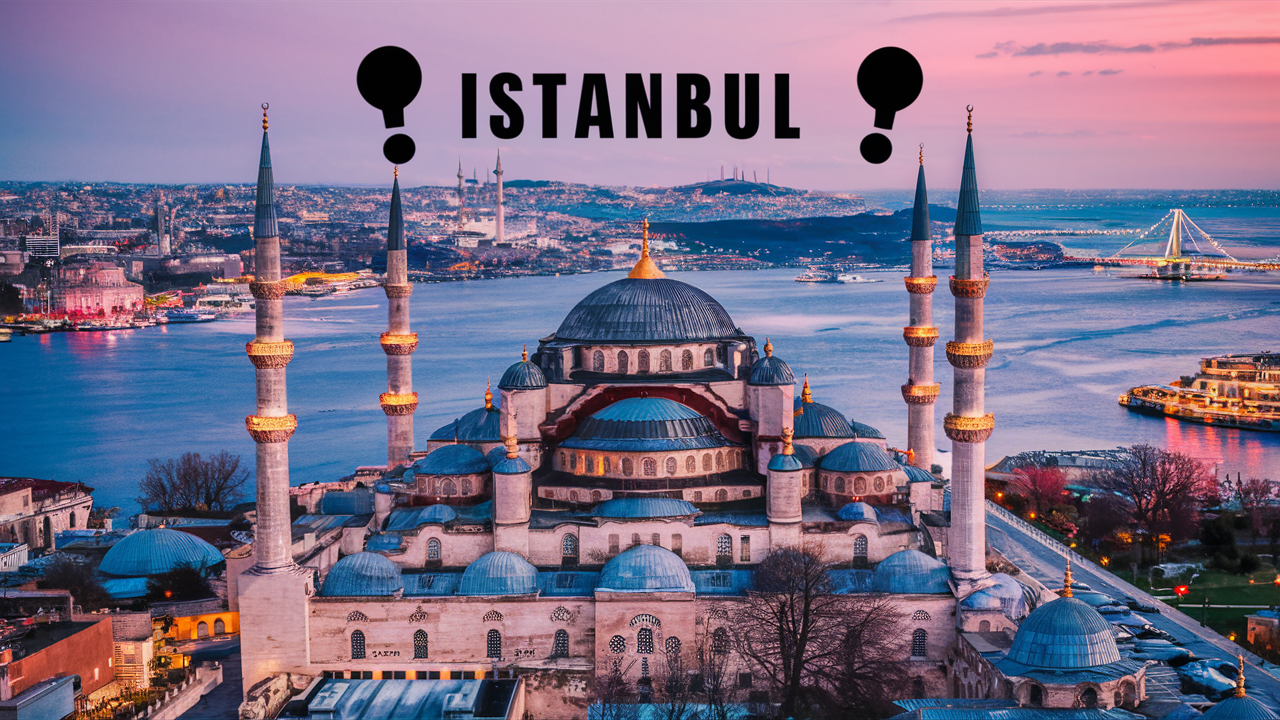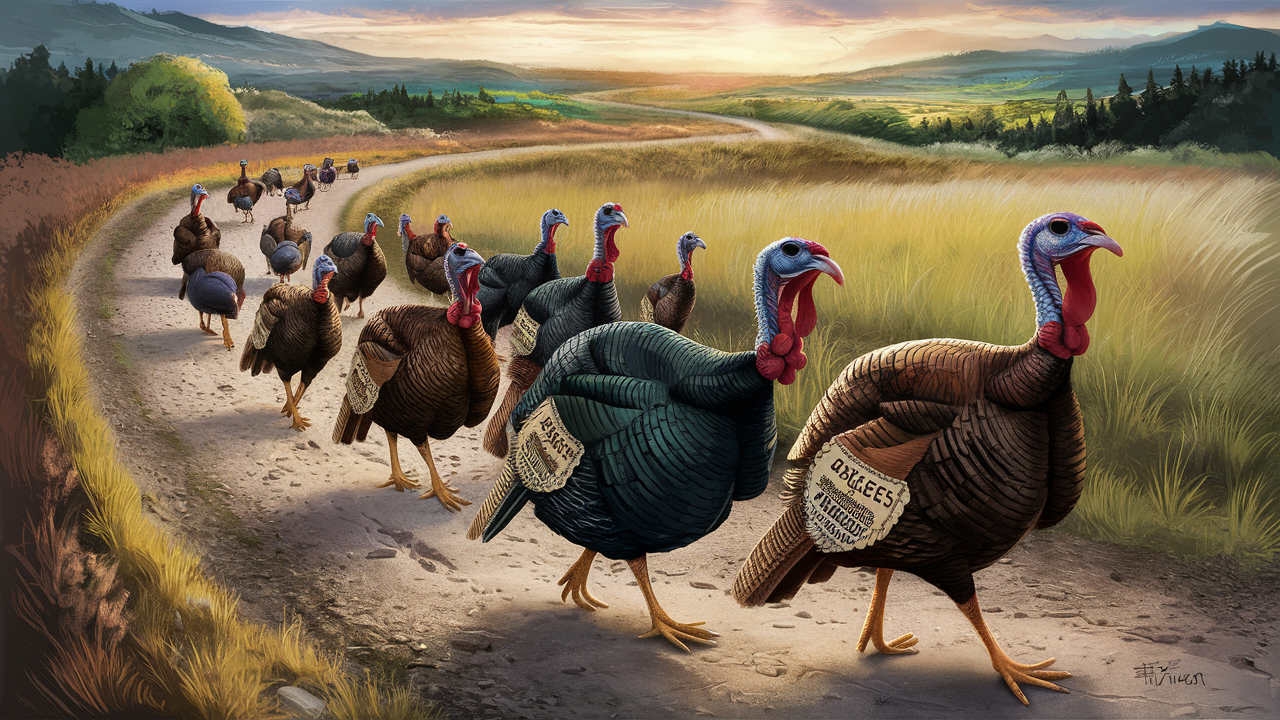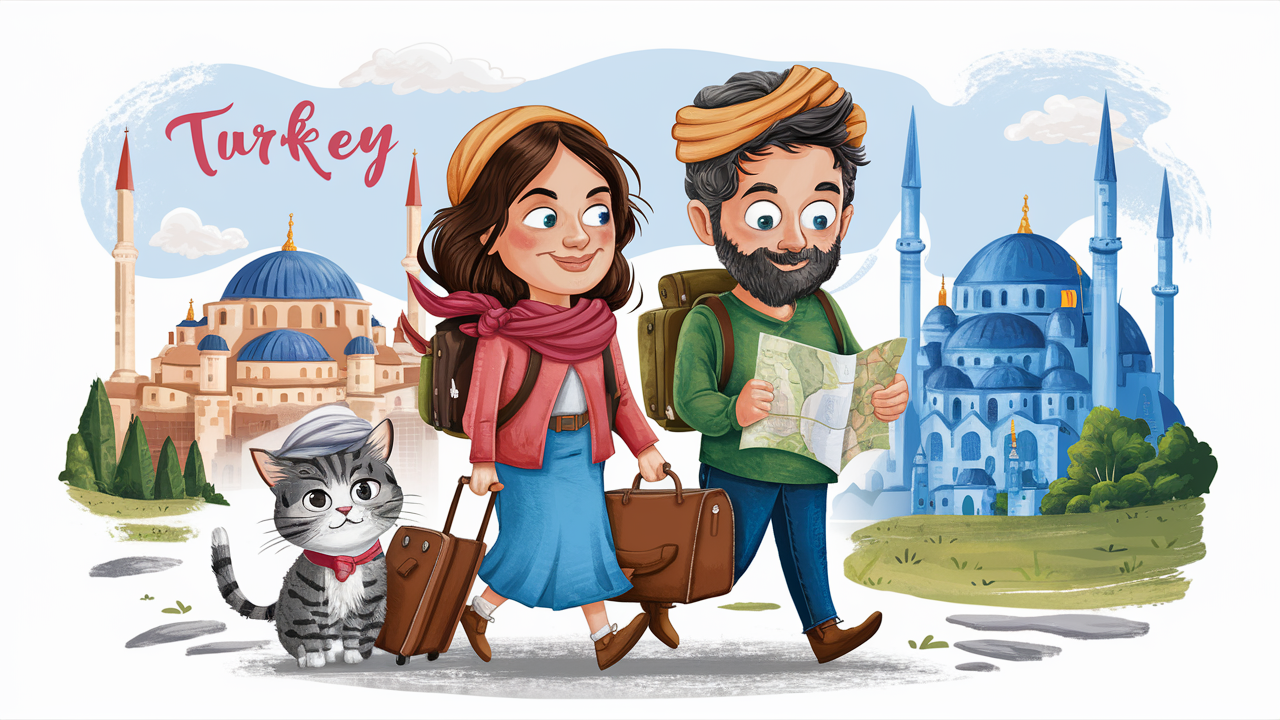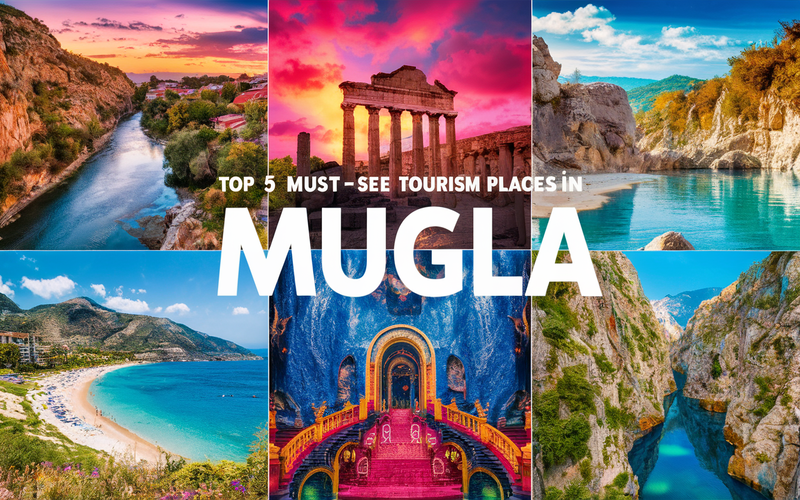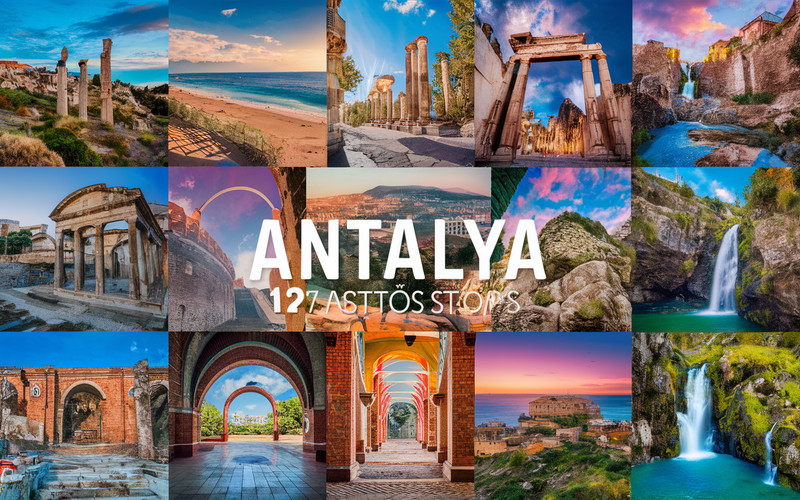Plan Your Travel To Turkey
Turkey Travel Essentials
Ideal Duration: 7 - 10 days
Currency: New Turkish Lira (YTL)
Best Time: April - June (Spring) and October - November (Autumn) Read More
Budget: Moderate
"A Land of Culture with Modern Twist"
Turkey Tourism
Turkey is a fascinating destination known for its rich historical legacy, breathtaking scenery, and dynamic culture. It is a transcontinental nation that spans Europe and Asia. Istanbul, a bustling city that spans two continents, is rich in history thanks to its famous Blue Mosque and Hagia Sophia. Discover the distinctive rock formations of Cappadocia, the historical wonders of Ephesus, and the immaculate beaches that line the Mediterranean and Aegean shores. Turkey's food is delicious and includes dishes like baklava and kebabs. Turkey welcomes visitors to enjoy its historical gems, breathtaking scenery, and unique combination of East and West. It is known for its warm hospitality, tapestry of customs, and cultural fusion.
Must Know Before You Travel to Turkey
- Visa Requirements: Check the visa requirements for your nationality and obtain the necessary visa or e-visa before your trip.
- Currency: The currency is the Turkish Lira (TRY), so exchange some currency or use ATMs upon arrival.
- Language: Turkish is the official language, but English is widely spoken in tourist areas.
- Cultural Respect: Respect local customs, especially in conservative areas, by dressing modestly and being mindful of cultural norms.
- Health Precautions: Ensure you have travel insurance, and consider vaccinations and medications for specific regions, such as malaria prevention in some areas.
- Safety: Turkey is generally safe, but be aware of your surroundings, avoid political demonstrations, and take normal safety precautions.
- Transportation: Turkey has an extensive transportation network, including buses, trams, and domestic flights. Consider an Istanbul Card for public transport in Istanbul.
- Cuisine: Taste traditional Turkish dishes like kebabs, baklava, and Turkish delight, and don't forget to try Turkish tea and coffee.
- Public Transportation:Turkey has an extensive transportation network, including buses, trains, and domestic flights. Taxis and ride-sharing services are also common in urban areas.
- Cuisine: Turkish cuisine is diverse and delicious. Try local dishes like kebabs, mezes, and baklava. Turkish tea and coffee are also an integral part of the culture.
- Historical Sites:Turkey is rich in history with numerous historical sites such as the Hagia Sophia, Blue Mosque, and Ephesus. Check for any specific rules and regulations when visiting these sites.
- Bazaars and Markets: Explore the vibrant bazaars and markets in cities like Istanbul. Bargaining is common in markets, so feel free to negotiate prices.
- Time Zone: Turkey operates on Turkey Time (TRT), which is GMT+3.
- Electricity: The standard voltage is 230V, and the frequency is 50Hz. The power plugs and sockets are of the Type C and Type F standards.
Tourist Places to Visit In Turkey
Istanbul
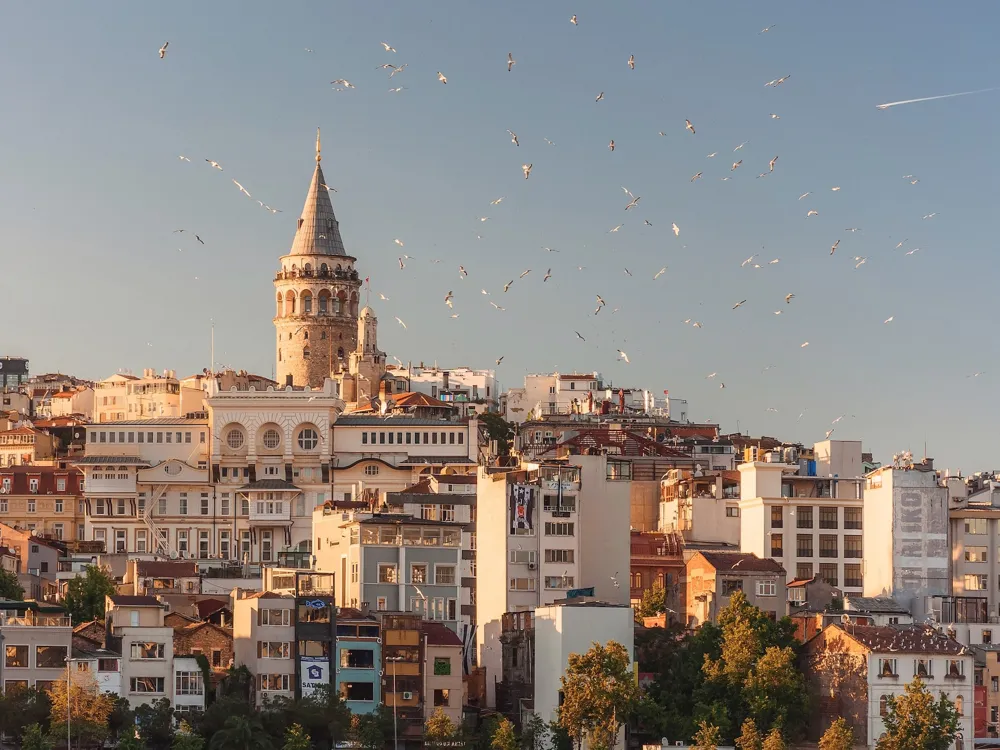
Antalya
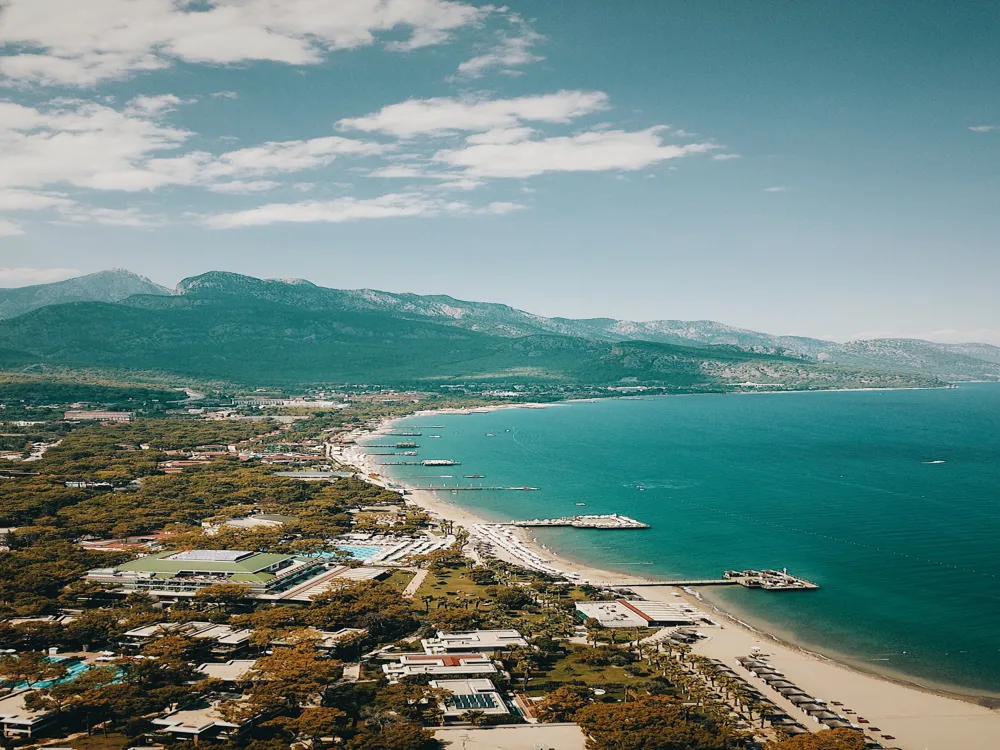
Cappadocia

Turkey Travel Packages
Compare quotes from upto 3 travel agents for free
View All Packages For Turkey
More on Turkey Travel
All collections about Turkey
Best time to visit Turkey
The best time to visit Turkey is in April, May, September, and October, when the temperature is warm and conducive to exploring the ancient sites. However, Turkey is considered a year-round destination, and the best time to visit depends on the places you wish to visit and the activities you want to indulge in. April and May (the spring season) are the best times for outdoor activities like trekking, cycling, or exploring archaeological sites. June through September are typically hot and dry, with temperatures being particularly high, making them great for island hoppers and beach lovers. From late October on, the weather starts to cool off a bit. From November to March, the weather starts to get cold, predominantly in the interior areas of Cappadocia, where the temperature drops to below 0°C. Winters can, however, be the best time to traverse the sites, as they are less busy at this time of the year. The Aegean and Mediterranean coasts of Turkey have a Mediterranean climate with mild winters and hot summers. and the best time to visit depends on the places you wish to visit and the activities you want to indulge in. April and May (the spring season) are the best times for outdoor activities like trekking, cycling, or exploring archaeological sites. June through September are typically hot and dry, with temperatures being particularly high, making them great for island hoppers and beach lovers. From late October on, the weather starts to cool off a bit. From November to March, the weather starts to get cold, predominantly in the interior areas of Cappadocia, where the temperature drops to below 0°C. Winters can, however, be the best time to traverse the sites, as they are less busy at this time of the year. The Aegean and Mediterranean coasts of Turkey have a Mediterranean climate with mild winters and hot summers.
Top Stories about Turkey Tourism
Read More on Turkey Travel
Exchanging money in Turkey:
When visiting Turkey, the official currency is the Turkish Lira (TRY). Exchanging money is straightforward, with numerous exchange offices, banks, and ATMs available in cities and tourist areas. Banks typically offer competitive rates, but exchange offices provide convenience. Credit cards are widely accepted, but it's advisable to carry some cash for smaller establishments and rural areas. Be cautious of fluctuating exchange rates and always verify transaction fees. ATMs are plentiful, making it easy to withdraw Lira. It's good practice to inform your bank about your travel plans to prevent any card issues during your trip.
Nightlife in Turkey:
Turkey boasts a diverse and vibrant nightlife scene. Istanbul is a nightlife hub with a wide array of bars, nightclubs, and live music venues. Bodrum is famous for beachfront parties and a lively atmosphere. Antalya offers a mix of beachside clubs and traditional Turkish music spots. Istanbul's historic areas come alive after dark, providing a unique backdrop for nighttime exploration. Traditional Turkish entertainment like belly dancing and folk music can be enjoyed in various venues. Whether you prefer electronic beats or traditional tunes, Turkey offers a nightlife experience for all tastes.
Shopping in Turkey:
Turkey is a shopper's delight, offering an eclectic mix of traditional bazaars and modern malls. Istanbul's Grand Bazaar is a historic treasure trove of rugs, jewelry, and spices. The Spice Bazaar is a sensory delight with aromatic spices and teas. Istanbul's Nisantasi district is a fashion lover's paradise with high-end boutiques. Cappadocia is famous for its handcrafted pottery and unique souvenirs. Don't miss the chance to haggle at local markets for bargains. Turkish carpets, textiles, and ceramics make for exquisite gifts and keepsakes.
Festivals in Turkey:
Turkey hosts a myriad of cultural and religious festivals, each offering a unique insight into its rich heritage. Ramadan is a significant event, observed with fasting and evening feasts. Eid al-Fitr marks the end of Ramadan, celebrated with festive meals and family gatherings. The Istanbul International Film Festival showcases cinematic talent from around the world. The Mevlana Whirling Dervishes Festival in Konya is a mesmerizing Sufi religious performance. The Izmir International Fair, one of Turkey's oldest events, highlights trade and industry. These festivals provide a chance to immerse oneself in Turkey's diverse traditions and culture.
Hygiene in Turkey:
Turkey maintains generally high standards of hygiene and cleanliness. Tap water is safe to drink in most urban areas, but bottled water is readily available and commonly used by tourists. Public restrooms can vary in quality, so carrying hand sanitizer is recommended. Sunscreen is essential, as Turkey's climate is sunny and warm. Insect repellent may be necessary in some regions. While hygiene is generally upheld, it's wise to exercise personal hygiene precautions when dining and traveling, like washing hands and avoiding street food in dubious locations.
Tips for visiting Turkey:
- Respect local customs, especially when visiting religious sites or participating in Ramadan.
- Dress modestly when visiting mosques and conservative areas.
- Bargain when shopping in bazaars and markets; haggling is expected.
- Be cautious of street touts and pickpockets, particularly in crowded areas.
- Try traditional Turkish tea and coffee in local cafes.
- Explore the rich history and architecture, from ancient ruins to Ottoman palaces.
- Sample Turkish cuisine, including kebabs, baklava, and Turkish delights.
Food in Turkey:
Turkish cuisine is a delectable fusion of flavors influenced by Middle Eastern and Mediterranean traditions. Kebabs, such as shish kebabs and doner kebabs, are popular and a must-try. Turkish breakfast, or "kahvalti," includes olives, cheese, tomatoes, and simit (sesame bread). Don't miss out on hearty dishes like manti (dumplings) and iskender kebab. Baklava, a sweet pastry, is a delightful treat. Turkish delight, or lokum, is a sugary delight available in various flavors. Traditional Turkish tea and coffee are staples of hospitality and are enjoyed in tea gardens and cafes. The Turkish culinary experience promises an array of mouthwatering delights.
Photos of Turkey
All Country Photos Turkey
Popular Questions And Answers on Turkey
Where is Turkey located?
Turkey is a transcontinental country located mainly on the Anatolian Peninsula in Western Asia, with a smaller portion in Southeastern Europe, separated by the Bosporus Strait.
What is the capital of Turkey?
Ankara is the capital of Turkey. Istanbul is the country's largest city and a major cultural and economic center.
What is the official language of Turkey?
The official language of Turkey is Turkish.
What is the currency of Turkey?
The currency used in Turkey is the Turkish Lira (TRY).
What are some popular tourist destinations in Turkey?
Turkey is known for its diverse attractions, including Istanbul's historic sites, Cappadocia's unique landscapes, the ancient city of Ephesus, the Mediterranean coastline, and the stunning Pamukkale terraces.
Is Turkey in the European Union (EU)?
No, Turkey is not a member of the European Union. It has been a candidate for EU membership, but the accession process has been slow and faced various obstacles.
What is traditional Turkish cuisine known for?
Turkish cuisine is renowned for its diverse and flavorful dishes, including kebabs, baklava, Turkish delight, and mezes (appetizers). Turkish tea and coffee are also widely enjoyed.
What is the Hagia Sophia, and why is it significant?
The Hagia Sophia is a historic architectural marvel in Istanbul. It served as a cathedral, mosque, and museum at different times in history. It is significant for its stunning architecture and the cultural and religious history it represents.
What is the weather like in Turkey?
Turkey has a varied climate due to its size and geographical diversity. Coastal areas have a Mediterranean climate with hot, dry summers and mild, wet winters, while the interior experiences more extreme temperature variations.
What are some cultural traditions and festivals in Turkey?
Turkey has a rich cultural heritage with various traditions and festivals. Some notable celebrations include Ramadan, Eid al-Fitr, and the Whirling Dervishes' performances, which are part of Sufi mysticism.

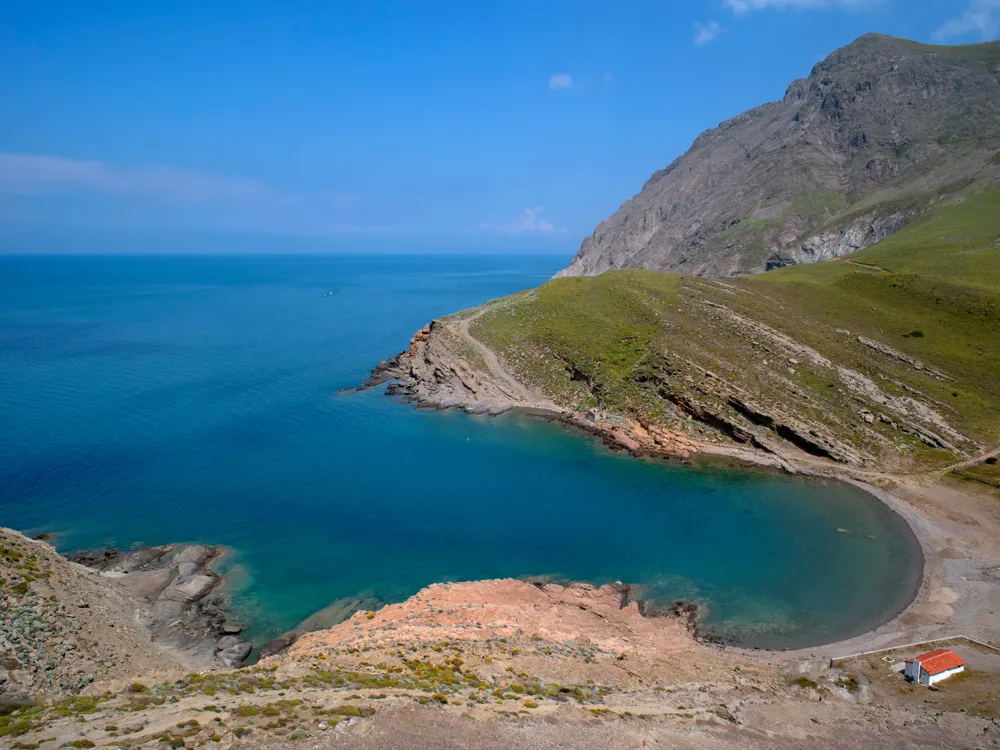
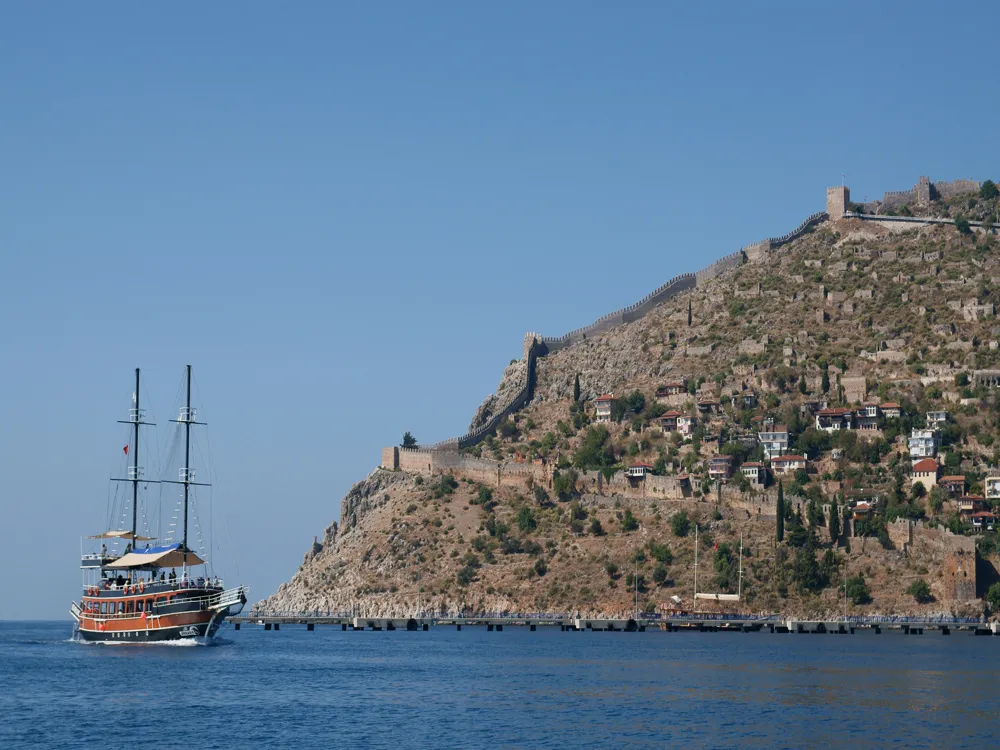
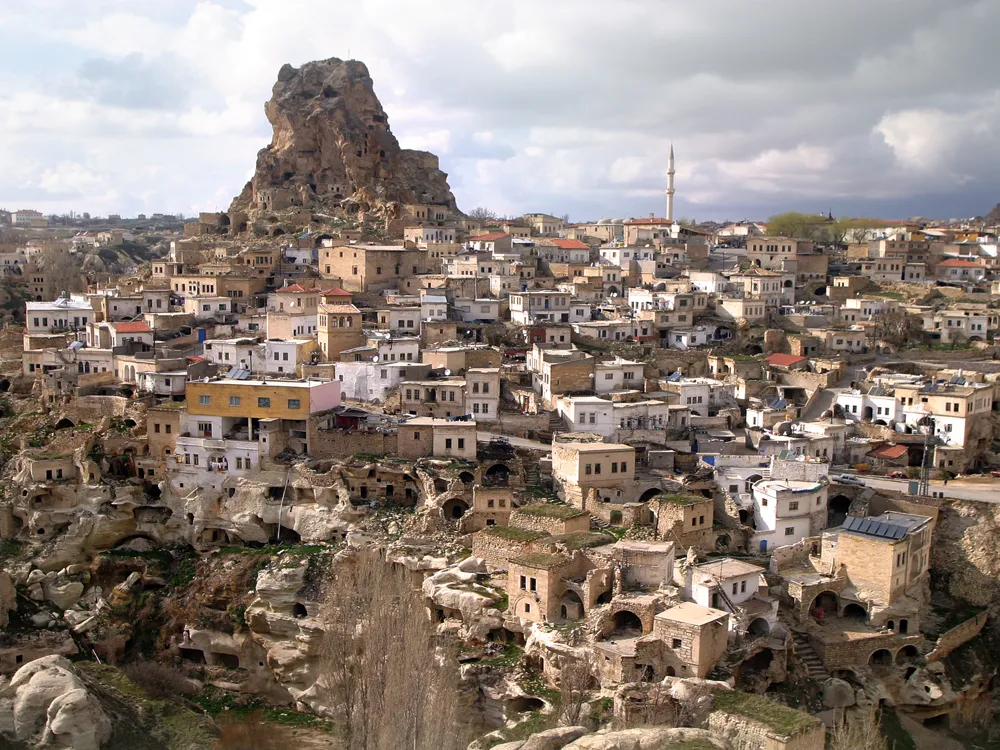
jpg.webp)
